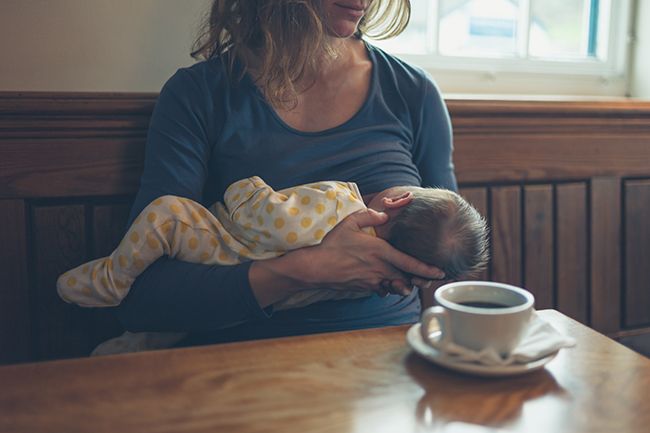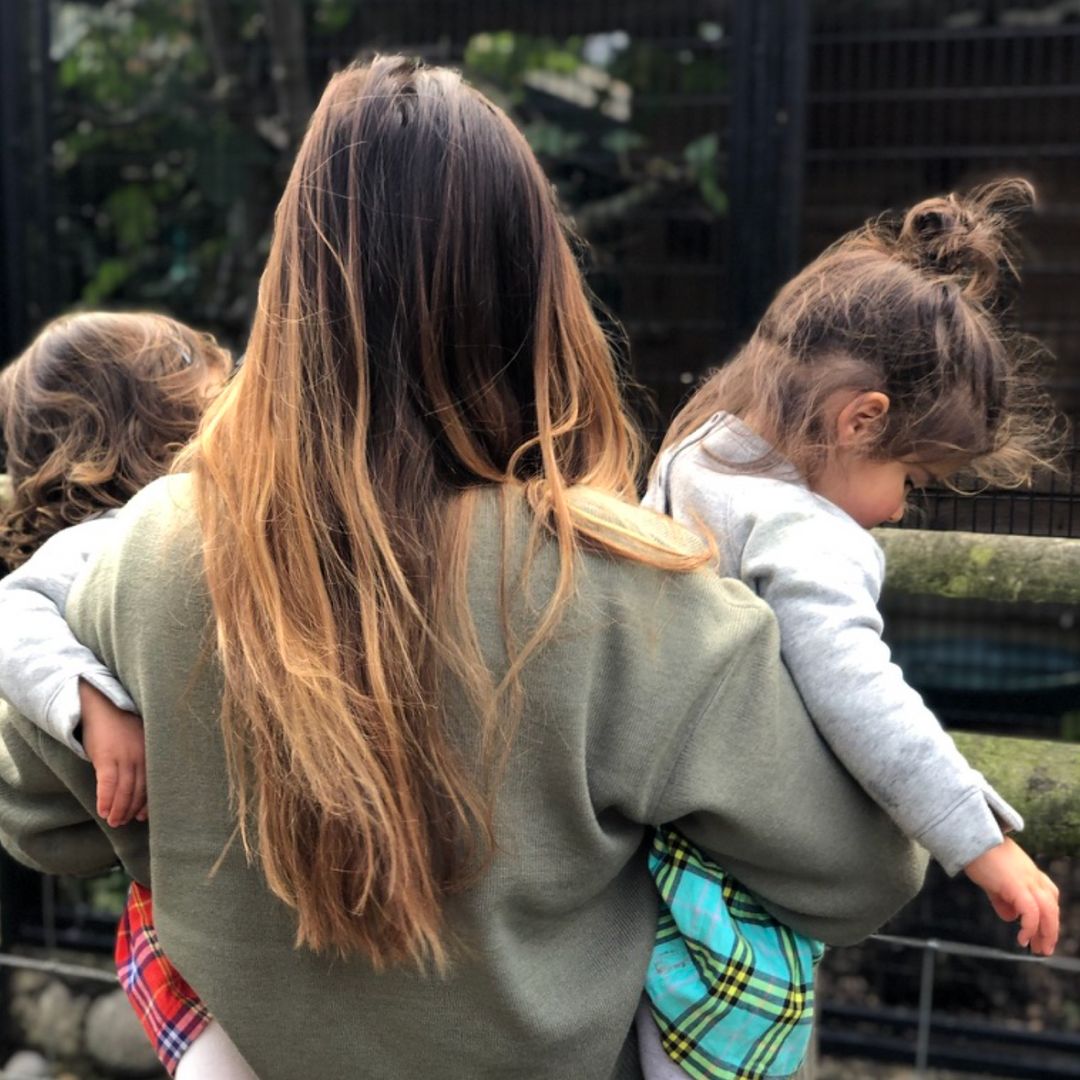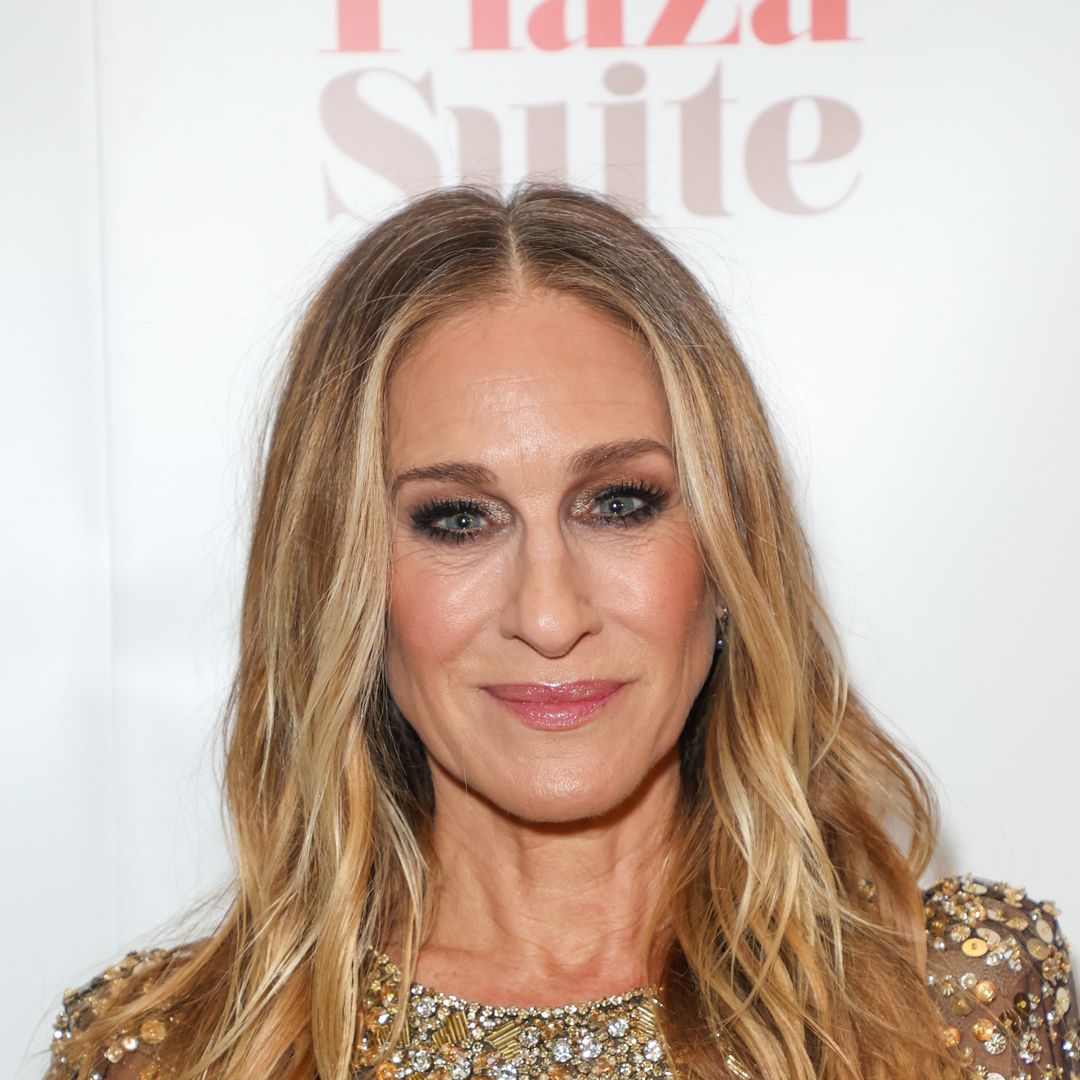How you feed your newborn is a personal choice and the most important thing is keeping baby fed and happy, whether that's through breastfeeding or bottle feeding.
MORE: 5 life-saving first aid tips for parents to know
Should you choose to breastfeed, your nurse or midwife will give you advice on how to go about this while in the hospital, or at home if you had a home birth. Breastfeeding is both a rewarding and sometimes tricky experience for mum and baby, but when you do master it, it's a wonderful bonding time for both.
WATCH: Actress Helen Flanagan opens up about breastfeeding
The NHS website recommends exclusive breastfeeding for around the first six months of your baby's life, and from six months alongside solid foods up until your baby's second year or beyond, should you wish.
Breast milk contains vitamins and minerals, offers protection from certain infections and reduces the risk of SIDS (Sudden Infant Death Syndrome), childhood diabetes and leukaemia. It also helps improve your baby's long-term health.
HELLO! spoke to Baby and Parenting Expert, former midwife and speaker at The Baby Show, Rachel FitzD, for her top breastfeeding tips. Below she answers some common questions…
How long should each feed last?
Rachel FitzD says: "When babies go to the breast they combine both feeding and soothing so it has dual benefits. Demand feeding and allowing your baby to set the pace to ensure that both these essential needs are fulfilled.
Mums quickly find that, just like grown-ups, some mealtimes are lovely hang-loose, snuggly affairs, whilst others are a quick snack before running off to do something else! So there really is no answer to the question of how long each feed should last.
In the early days, it can feel as if some feeds go on forever and they feel worried. Then, as babies get a little older and start to have some days when all they want to do is dive on for a quick snack, those same mums find that they really miss the long snuggly, cuddly feeds.
Try to avoid clock-watching and find something else to do whilst baby feeds such as reading or doing your emails."
MORE: Pregnant royals ready to pop! 14 final photos before they gave birth
READ: Baby sleep: 6 top tips for better and safer sleeping
I'm trying to breastfeed but it's so sore - what should I do?
Rachel advises: "Our breasts are beautifully evolved for feeding babies comfortably for as long and as often as they and we wish. Pain is always a sign that something is amiss and often it is easily overcome with the help of someone trained to support mums with breastfeeding. Never suffer in silence - seek help from a specialist.
In the meantime, whilst you wait for help to arrive, try lying down on your side, cuddling your baby in nice and close with their nose just below your nipple and touching the underside of your breast. Then relax whilst your little one starts to reach back and up by reflex and find their own way of getting on.
Try really hard not to pull back to see what’s happening as this can create enough of a gap between the baby’s mouth and your breast and interferes with their natural reflexes."
My husband feels left out of the feeding process - how can I include him?
Rachel says: "The nicest way by far for a husband or partner to feel involved in the loving snuggles of a breastfeed is for them, quite simply, to hold the baby on the breast so that you can all put your feet up and spend time together.
Once your partner has been shown how to do this you’ll be surprised how easy it is and what a lovely moment it is to share.
If you do want to use bottles, then the first feed in the morning is the one which will probably interfere least with your own supply and so have less impact on your breastfeeding journey.
But remember that your partner needs to give the bottle very slowly, taking plenty of little breaks for a soothing pat or rock, and let baby say 'enough' even if they haven’t finished the bottle - they know their appetite better than anyone else and can judge whether they need a good meal or just a tiny snack for now."
Can you drink alcohol and breastfeed?
Rachel tells us: "Alcohol, just like other drugs, can enter our blood and, therefore, enter our mum’s milk. However, there is no need to give up alcohol altogether when breastfeeding.
The liver clears alcohol from the blood at the rate of about one unit per hour after the first hour so, have a drink and then wait a couple of hours before giving your baby a feed if you want to avoid them getting any from your milk. Remember that, for your own health, keep within the health guidelines on safe drinking and avoid binge drinking.
Despite what you might be told, there is absolutely no need to express your milk and throw it away if you’ve been drinking (often called 'pumping and dumping') as any alcohol in your milk drops as the level in your blood drops - so it naturally self-cleans even as it sits in your breasts!
Finally, don’t share a bed or sofa with your baby if you have been drinking as this can increase the risk of SIDS and bed-sharing accidents."
MORE: Top Bridgerton-inspired baby names for 2022 - and four are royal!
How can I start combination feeding breastmilk and formula with a newborn?
Rachel advises: "Introducing formula too soon on your breastfeeding journey can confuse your body and cause issues with your supply. So it is recommended that, unless there is a clinical reason, you do not introduce formula for the first six weeks at an absolute minimum.
Once you do start, contrary to what many people think, giving the bottle at bedtime is not helpful and is most likely to interfere with your own supply.
Although babies like to go to the breast a lot in the evenings, it is the closeness and soothing that they are looking for rather than lots of extra milk, and there is no evidence at all that giving extra food in the evening in the way of a bottle makes babies sleep longer. In fact, it can just increase discomfort and wind.
It's better to give a bottle in the morning hours before midday and, if your partner wants to do this, then that early morning bottle might just give you an extra hour in bed!
Be aware that it is more difficult for a baby to control how much milk they take from a bottle compared to feeding at the breast, so go slowly or a baby can easily overfeed and get uncomfortable and vomit.
If at any point you feel that giving formula is affecting your own supply simply cut down on the amount of formula you are giving, allow your baby to go to the breast more often and your own supply should bounce back."
I think my baby is using breastfeeding as a comfort - what should I do?
Rache says: "All babies use the breast for both food AND comfort, and this is completely normal. In fact, babies can switch the flow of milk on and off throughout the feed so that they can take a little milk, and then soothe-suck for a little, feed a little more, then soothe-suck again. This is the healthy way that humans get everything they need in one fell swoop so no need to over analyse.
This stage won’t last forever and if your baby didn’t soothe on the boob, you’d simply have to get up and walk the boards patting and rocking more.
Once you relax and realise that nothing is wrong and that your baby is simply being a baby, you’ll discover that you can sort out your emails, call a friend, book your car in for its MOT or, as Jacinda Ardern has shown us, run a country whilst a baby feeds and soothes and stays happy and safe on the boob. Most of us mere mortals are quite happy doing our emails and having a cuppa though!"
When I want to stop breastfeeding, how do I wean my baby off it?
Rachel reveals: "Once you start giving family foods from six months of age, babies very gradually take more and more solids whilst, at the same time, slowly and easily cutting back on their mum’s milk.
This helps your breasts adjust really naturally and comfortably without any effort on your part. If you want to speed up that process before your baby self-weans then it is fine to stop slowly or more quickly by replacing one or more breastfeeds with the offer of a bottle or cup of formula (or full-fat cow’s milk if over the age of one).
The faster you cut out breastfeeds, the more likely you are to get full and uncomfortable and, as tempting as it is to express, this is likely to make matters worse.
Instead, wear a firm, well-fitted bra, take paracetamol for pain, and ibuprofen (if you are not asthmatic) if your breasts become flushed and, using a flat hand (not knuckles) massage your breasts from the nipple backwards a couple of times a day to relieve any tissue swelling (oedema). This is called 'reverse pressure softening' and will help reduce any heaviness and discomfort until your milk naturally dries up.
If, at any time, you get feverish, carry on doing these things and also speak to a breastfeeding specialist or lactation consultant."
Rachel FitzD is an infant feeding consultant and baby and parenting expert and is the author of Your Baby Skin To Skin. She has a free Facebook group, RachelFitzD Community.
You can hear more from Rachel at thebabyshow.co.uk taking place 13-15 May at Birmingham’s NEC. The UK's Leading Baby & Parenting Shows in London ExCel, London Olympia, and the Birmingham NEC.
Like this story? Sign up to the HELLO! Family Hub newsletter to get other stories like this delivered straight to your inbox.












